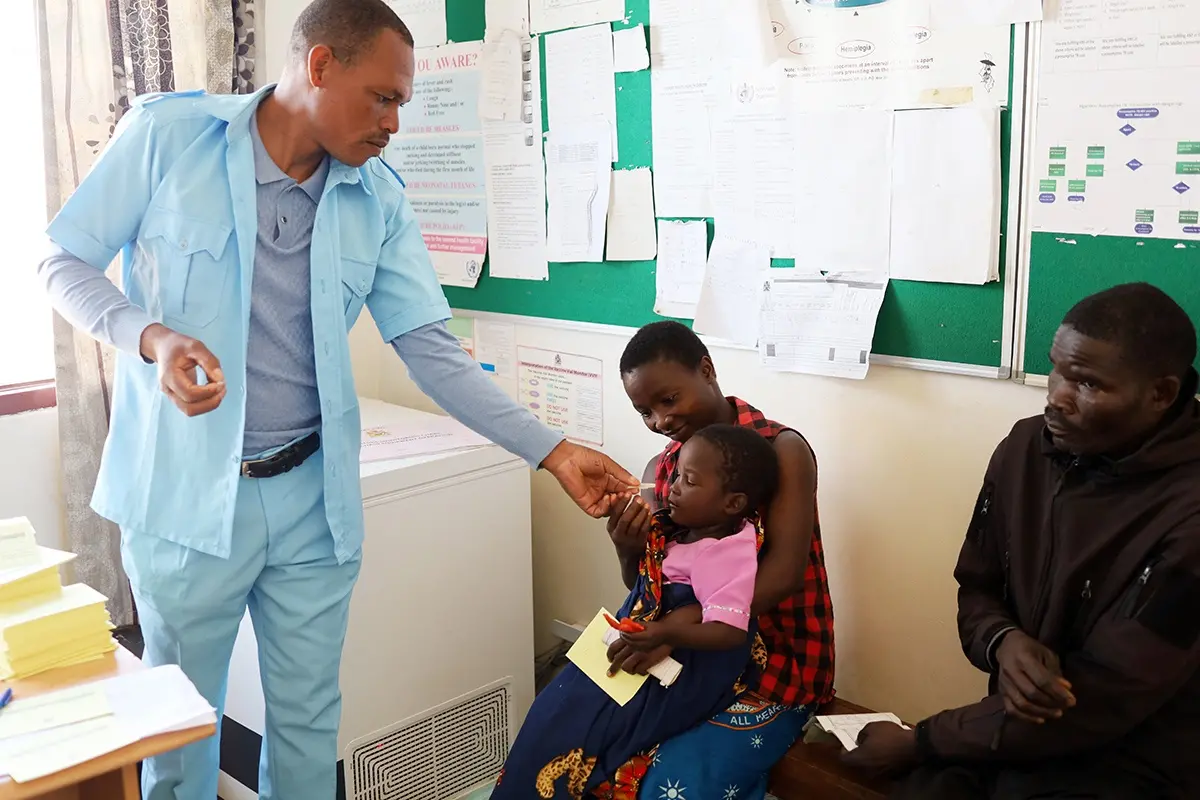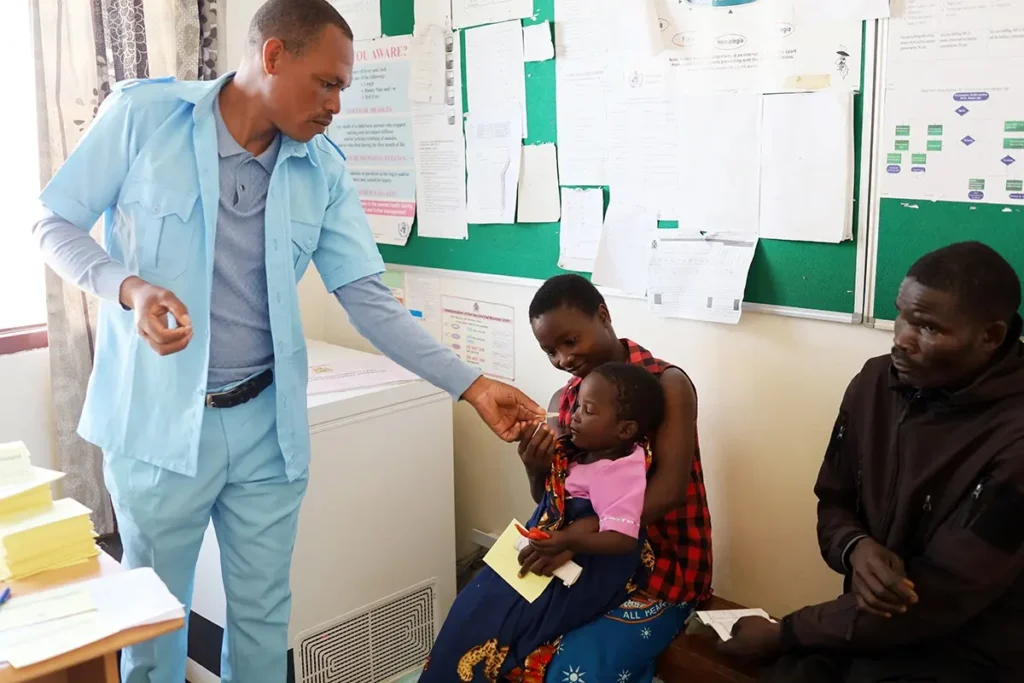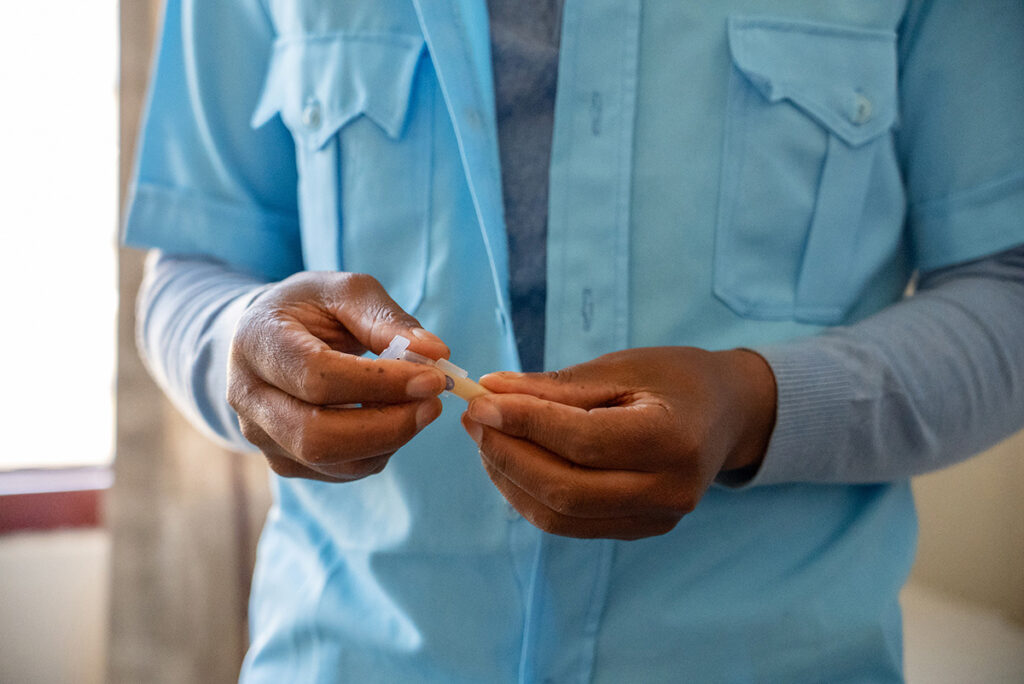Cholera Vaccine Campaign Completed in Hard Hit Region of Malawi

Health workers give two-dose oral regimen to tens of thousands in Neno District
Posted on Sept 26, 2022

In Malawi, where residents have endured cyclones and storms followed by a cholera outbreak over the past nine months, local health teams have completed a massive oral cholera vaccination campaign in the hard-hit Neno district.
A total of 87,352 individuals or 59% of the district’s target population were given both doses of the vaccine, meaning they are fully vaccinated, according to a report by health workers with Abwenzi Pa Za Umoyo (APZU), the sister organization of Partners In Health. More than 86% of the population received at least one dose of the oral cholera vaccine during the campaign.
Jones Chimpukuso, the Community Health Director for APZU), which led the vaccination efforts in collaboration with the Ministry of Health and the Neno District Health Management Team, said the vaccines provide protection against the disease for three years.
The large-scale vaccination campaign was launched following a cholera outbreak in April that killed two people and sickened more than 300 in the Neno District, the APZU report said.
APZU, with support from local health workers and leaders, shepherded the effort throughout, from early detection and treatment of patients to community awareness and vaccine administration.
But the campaign required the mobilization of many in the community. For example, the APZU report noted that all 169 village heads and religious leaders in the area were briefed on the campaign and helped strategize on how to organize residents for vaccination.
Local leaders took the vaccine in public, which sent a positive message and helped increase vaccine uptake, APZU said. Using mobile vans in densely populated regions also helped, as well as teams of health workers going door-to-door to reach families.
Dorothy Sinkhani, a resident of the Dembe district, said the messages from local health workers convinced her to get both doses of the vaccines for herself and her young daughter.

Cholera is a deadly disease that can cause severe diarrhea and vomiting. Children are most often affected and can quickly become dehydrated, go into shock, and die within 24 hours if they are not treated. The disease can spread rapidly, depending on the frequency of exposure, the exposed population, and the setting. The incubation period is between 2 hours and five days after ingestion of food or water contaminated by sewage bearing the bacteria, Vibrio cholerae.
Cholera spread through the region earlier this year, in the aftermath of Tropical Storm Ana and Cyclone Gombe. The pounding rain, wind, and subsequent flooding disrupted already weak structures, including water sources, officials said. Homes across the region collapsed and most people lost their household items for sanitation and hygiene. The result: Many residents had limited access to safe drinking water.
The storms impacted over 221,000 households and 945,000 individuals nationwide, officials said; in Neno District, more than 7,500 homes were destroyed.
Targeted vaccination campaigns are not new for PIH: successful cholera vaccination programs were launched previously in Sierra Leone and Haiti. Indeed, PIH’s work in Haiti during a 2010 cholera outbreak, rapidly mobilizing to treat more than 145,000 Haitians and vaccinate another 45,000, was key to the development of a global stockpile of oral cholera vaccines by the World Health Organization and other partners in 2012.
Originally published on pih.org



